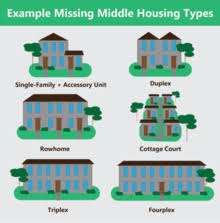
With reality shows flipping homes popular, it’s no wonder the estate investment market has followed this trend! According to a report from New Silver, the average net profit for flipping a house was $30,000 in March 2022. Furthermore, according to Statista, by the second quarter of 2021, the average gross profit per home flip in the U.S. was $67,000. This figure was 32.3 percent by the third quarter, according to ATTOM!
Despite its ease on paper and theory, success in flipping homes requires understanding some key features of the practice. What follows is an introduction to critical aspects of flipping homes to make your estate investment profitable!
Find the Right Market
To make a good profit when flipping a house, you need to find a real estate market that suits your needs. Studies have shown a big difference in home flippers’ profits in different states.
A report by Balancing Everything shows that the following cities were among the best for flipping a home in terms of average ROI:
- Pittsburgh, Pa.: 162.4 percent ROI.
- Atlantic City, NJ: 141.6 percent ROI.
- Memphis, Tenn.: 132.7 percent ROI.
- Denver, Colo.: 109 percent ROI.
- New Orleans, La.: 104.2 percent ROI.
Of course, these areas may not be within your reach. Nonetheless, you should look closely at your location’s home sales and house flipping profits.
You should also note the community you invest in. What is the income level, and what is the school district like? How about the crime rate? You can radically improve a very cheap home, but it won’t sell as quickly if it is located in a neighborhood with a recent increase in burglaries. Also, be careful of areas where homes are selling at a high rate. This could mean that the local economy or neighborhood conditions are pushing people out.
Instead, you want to settle down in places with high employment numbers, low crime rates, and other positive signs of neighborhood growth—basically, a community that combines safety and economic growth with the potential for a profitable estate investment.
Build Your Budget
Once you sense your target neighborhood, you need to know what you can reasonably pay for a new home.
Paying for a house in cash is the most straightforward route. It removes the mortgage application and approval process and makes your offer appealing to prospective sellers. You also won’t need to make ongoing interest payments for the property as the renovations are underway. Still, some house flippers need financing.
Upon finalizing the amount you’ll need for the actual house, you should explore the costs of potential projects. Many people mistake failing to take the housing market into account. When computing the amount you can get for a house, aim for the lower end of comparable sales prices. This will give you some more wiggle room if costs go over budget.
Now that you know how much you can and should spend, start shopping for a house and financing options if needed.
Double-check that you’re taking everything into acount to maximize your estate investment. There are likely some significant factors that may not be on your radar.
Conclusion
Gaining financial independence has always been the American dream through cash, investments, or real estate. So why not get help for your estate investment from Evergreen today? We connect homeowners like you with the opportunity to create wealth from your real estate properties. Find out more about our services by visiting our website!




0 Comments